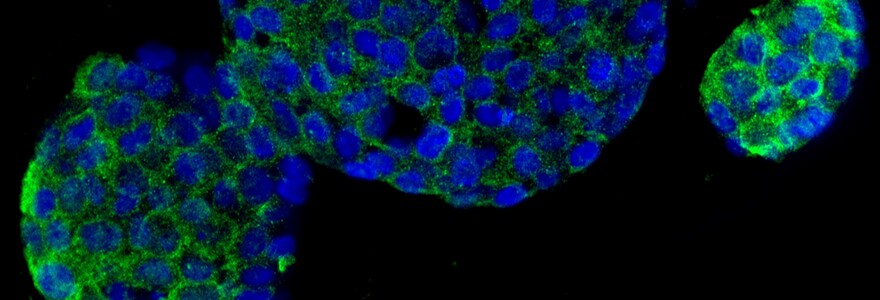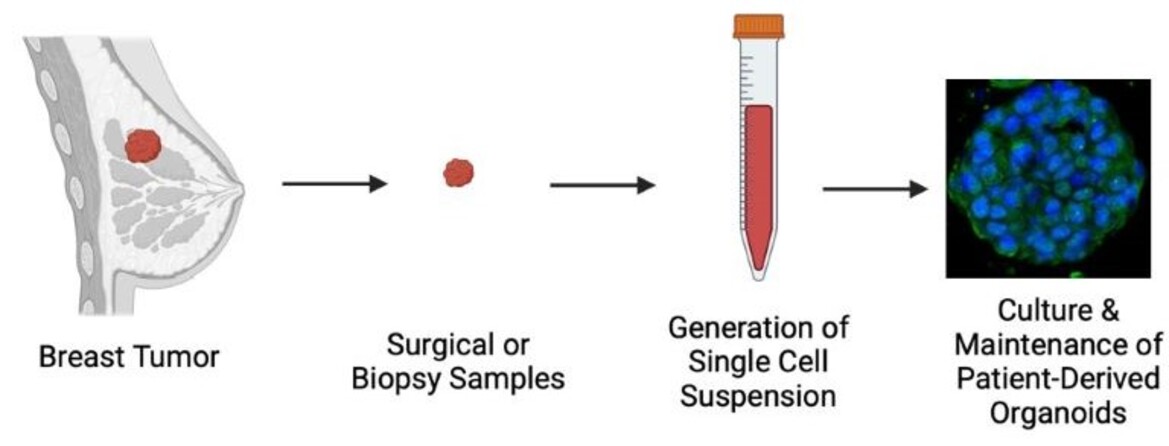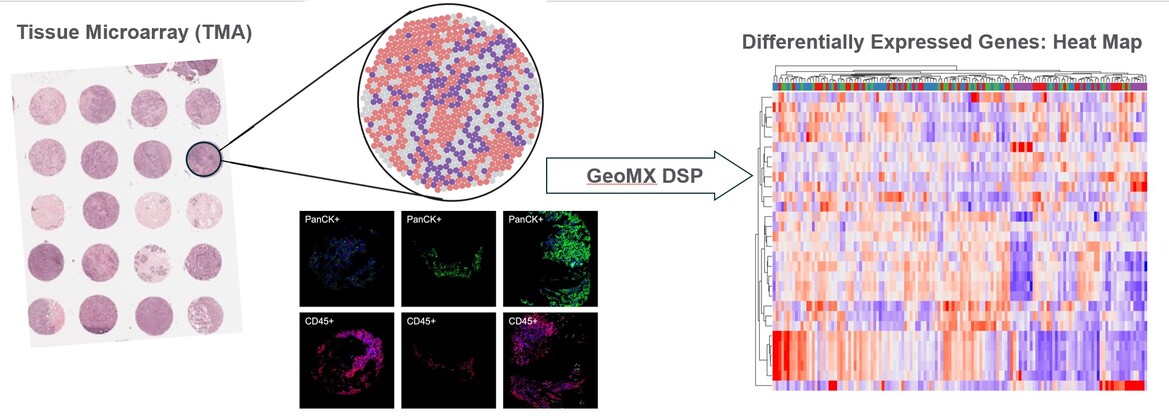Research Methodologies
 Studies of Novel Drugs and Multimodality Combination Treatments: Research Methodologies
Studies of Novel Drugs and Multimodality Combination Treatments: Research Methodologies
We utilize conventional experimental systems and novel patient derived experimental models, such as patient-derived organoids (PDO) to study responses to chemotherapy, novel drugs and radiotherapy and to understand better the mechanisms of breast cancer progression and resistance to treatment. We obtain promising preclincial results that can serve a basis for clincial trials in patient populations to improve their outcomes.
Patient Derived Organoids

We utilize patient derived organoids (PDOs), which are 3-D cell cultures that are established from patient tumour tissues. They offer a much better model of breast cancer cell biology because the cells maintain their 3D structure and better mimic in vivo cell-to-cell interactions. Because each PDO is patient specific, it allows us to look at the heterogeneity between patient samples and could lead to patient specific treatment strategies. (image produced in part with BioRender.com)
Spatial Omics

We use modern cutting-edge omics technologies of spatial transcriptomics, proteomics and multiomics to study mechanisms of breast cancer progression, responses to treamtent, the role of the immune system and discovery of clincially essential biomarkers and novel drug treatments. GeoMX DSP (Bruker Spatial Biology, formerly Nanostring) reads and analyses thousands of genes and proteins in spatial context to determine which genes show differential expression. (image produced in part with BioRender.com)
CRISPR Cas9 Gene Silencing
We utilize genome-wide CRISPR-Cas9 screens to identify novel molecular targets that play an essential role in breast cancer pathogenesis and treatment resistance. Once validated and tested, these targets can help us understand TNBC pathogenesis and may act as novel biomarkers of treatment sensitivity to enable more effective treatment strategies.(image produced with BioRender.com)









